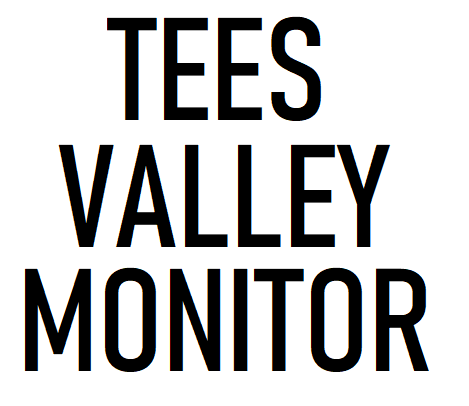The Commodification of Conservative Britain.
From Share-owning Democracy to Sharing your
Medical Records
Photo by Maria Ionova on Unsplash
Scott Hunter
16 June 2021
The government has directed NHS Digital to start taking medical records from GPs in England and Wales from 1st September 2021, with a view to creating a central database of pseudonymised patient data. This is their second attempt to do so. The first attempt, in 2014, was abandoned. So, why are they trying again?
According to the website medConfidential, the following data will be collected:
- “data about diagnoses, symptoms, observations, test results, medications, allergies, immunisations, referrals, recalls and appointments, including information about physical, mental and sexual health” (more details)
- “data on sex, ethnicity and sexual orientation”
- “data about staff who have treated patients”
And according to Polly Toynbee in The Guardian, they’re doing so because it’s a very good idea. As she says, “The NHS has the world’s richest store of data on patients – a treasure trove for researchers – as most other counties lack such a unified system”. Also, such data is already collected in Scotland, and no one appears to mind. Cynics might suggest that this is because Scotland’s health service is not controlled by English Tories, whose record on integrity and transparency is not the best. Which, as Toynbee herself acknowledges, is where the problem lies.
Marina Hyde, also in The Guardian, points out that, when the government tried to gather these data in 2014, “a ragtag band of privacy campaigners, worried doctors and MPs like David Davis campaigned their arses off, meaning that there was public debate and enough people learned about it in time to opt out.” The scheme, she says, therefore collapsed.
There are now two forms of opt-out. As medConfidential makes clear, only the one known as ‘type 1 opt out’ ensures that all of your data is kept private. As second form of opt-out, available via the ‘national opt-out data page’ offers much more limited protection and still entails your GP delivering your data to NHS Digital.
The type-1 opt-out form is available here.
But medConfidential goes on to point out that if you opted out in 2014, that opt-out was type 1 and still applies. So, if enough people opted out in 2014 for the scheme to collapse, and their opt-out is still valid, doesn’t that mean that the new scheme is already sunk? A new campaign has now been launched which is likely only to increase the number of opt-outs. Who is going to get in touch with NHS digital and ask to opt back in again? (NHS Digital is making that option available to all who visit its site).
Perhaps, in 2014, the collapse of the scheme was less to do with the actual number of opt-outs and more to do with the government fighting shy of bad publicity. This was the age of the Big Society after all. But Johnson’s government is much more belligerent than Cameron’s. This government floundered over Covid-19, while at the same time announcing that every measure they took was world-beating. If you can’t manage leadership, make do with cognitive dissonance, as you might say. It worked then, it can work again. Johnson is much less likely than Cameron to be cowed by negative public opinion.
So, Johnson will press ahead with this programme regardless. Polly Toynbee is undoubtedly right when she describes this as “a plan of incalculable medical value”, but it will now go ahead with a dataset that is more depleted than would have been the case in 2014. The fact that no effort was made to persuade the public of the value of the scheme should set off alarm bells about what its true underlying purpose is. One aspect of this is the lack of security with which the data is treated. Thus Phil Booth of medConfidential writing in Byline Times,
“Like the Office for National Statistics and Genomics England, NHS Digital does now have what is known as a ‘safe setting’ – a secure data processing facility with layers of rules, approvals, protections and monitoring. But the Government has not made it mandatory for patients’ GP data to only be accessed via this highly secure, heavily audited environment. And so, in all likelihood, NHS Digital’s customers will continue to buy copies.”
Were this government aiming to create something of ‘incalculable medical value’ they might be dissatisfied with the impoverished dataset they are in the process of creating. But they are not. And in the absence of any evidence to the contrary, we fall back on our suspicion that this is data trawl is on its way to market.
Let’s face it, things enthusiastically embraced by Tory governments have a habit of going awry, or rather, ending up not quite as originally billed. Who can remember, for example, when Margaret Thatcher sold off public utilities and nationalised industries with a view to creating a ‘share-owning democracy’? Her critics at the time called it ‘selling off the family silver’, and that was before they all ended up in the hands of foreign companies. Yet the belief in the share-owning democracy lives on, culminating in the debacle at Sirius Minerals, where all the small investors lost out and the government refused to step in to save the company from selling out to American mining congolmerate, Anglo-American.
To return to Polly Toynbee’s point, we must therefore conclude that this is an opportunity missed. And missed spectacularly. Boris Johnson’s government has destroyed any concept of government working for the public good. From the fantasy of ‘Let’s Get Brexit Done’ to the cynicism of Dido Harding’s test and trace, it has treated the public as a resource to be manipulated. The public’s health data are in the process of being turned, not into a resource for researchers, but a commodity to be traded.

